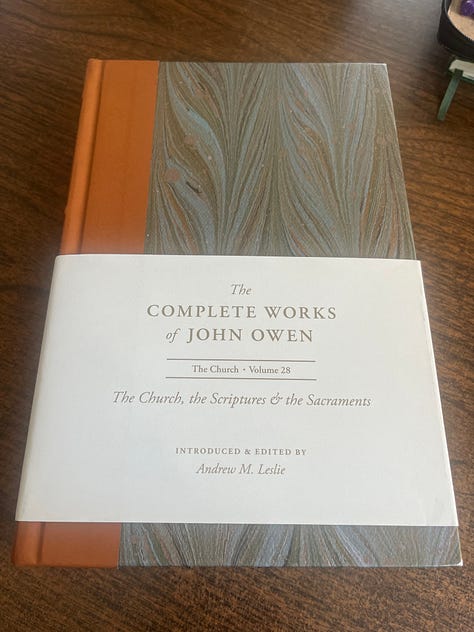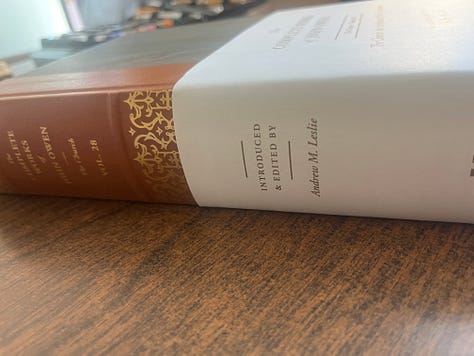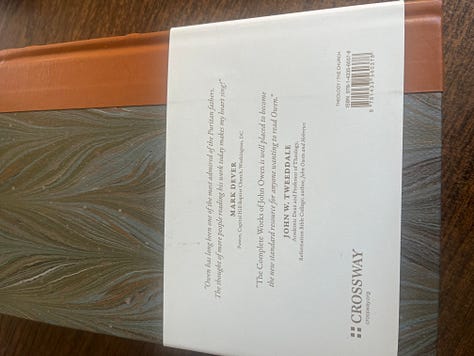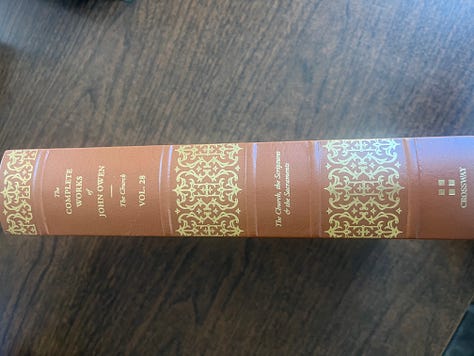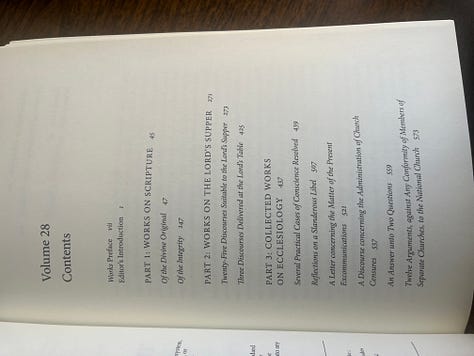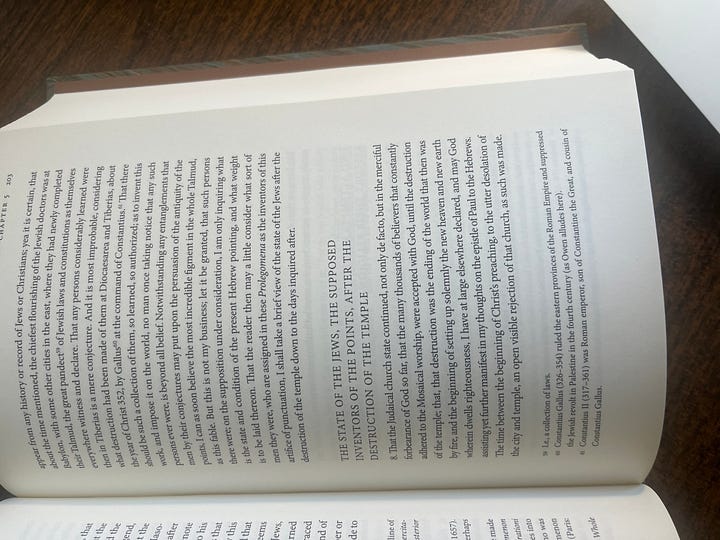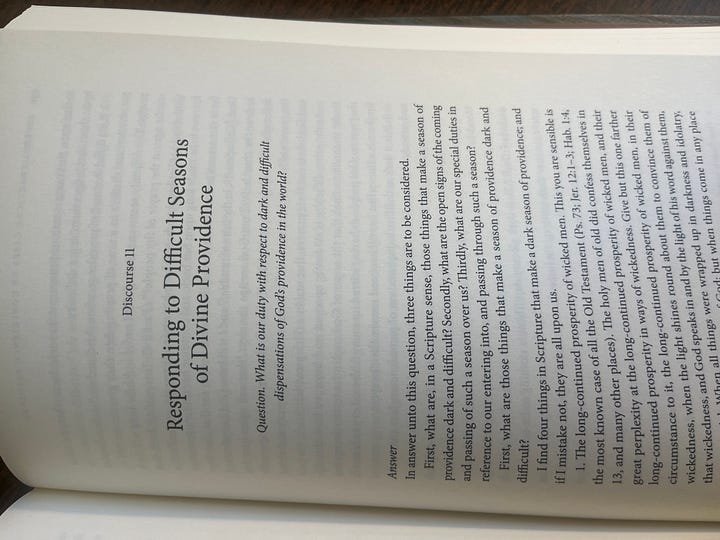In The Complete Works of John Owen: The Church Vol. 28 published by Crossway, volume editor Andrew M. Leslie sets forth the introduction to the contents of the volume, which is an invaluable edition to appreciate the historic context of Owen for the modern reader.
The first portion of this volume is given to works on Scripture, the second to works on the Lord’s Supper, and finally that of collected works on ecclesiology.
Concerning the works on Scripture, I appreciated Owen’s requisites for good translations, stressing the importance of translating from the originals, they being of “venerable antiquity” and to be translated by “men of ability and integrity, sound in the faith, and conscientiously careful not to add or detract from the originals they made the translation out of.” In principle, Owen is very helpful. Many use Owen to argue for their particular translation or supposed original. But one must keep in mind that when reading Owen on these matters, there is a real context to his time, and he was limited to the vast amount of manuscripts were are gifted with today. So, in this section, the value is apparent in principle how we should handle the Scriptures. Scholars will benefit most from the first part of this treatise.
The second section concerning the Supper and the third on the church are more up a pastors alley per se. I found the various discourses on the Lord’s Supper to be good for the ministry toolbox, and for personal devotion. In Discourse 9, for example, he lays out “Different Sorts of Sinners in Approaching the Lord’s Table.” He lists three, beginning with the sinner not sensible of his sins, moving on to the sinner overburdened by his sin, and ending with those sensible of the pardon of their sins. The first insensible over their sin is pointed to “take a view of the Son of God under the curse of God” and remember “that all these sufferings were for us.” The second overburdened (though believing) sinner is pointed to an example of believers like this also greatly burdened in Psalm 40:12, but then relieved under the gospel text of John 3:14–15 so as to look to the Son of God lifted up “with all our sins upon the tree.” The third sensible of their pardon from sin is taken to Revelation 1:5–6 so as to give thanks and be fruitful in giving glory to the Lord “who loved us and washed us from our sins in his own blood.” A pastor will find such a resource helpful for preparing for right administration of holy communion.
The third part of this volume dealing with Ecclessiology deals with many practical matters, some very difficult, like the one that concludes the book “Of Marrying After Divorce in the Case of Adultery.” Unlike weak pastors in our day, Owen has the backbone to state that adultery “is a just and sufficient cause of divorce betwixt married persons.” I fear that today due to pastoral weakness, many believers are given license to sin in this way without consequence. Nonetheless, Owen’s instruction holds the ideal that “Marriage is an ordnance of the law of nature; but in light and reason thereof, there is no intimation of any such practice [I.e. divorce]. It is still directed, that they who might justly put away their wives might marry others.” He argues “that which dissolves the form of marriage…destroys all forms of marriage, does dissolve the bond of marriage. For to take away form and end of any moral relation, and the relation itself ceases.” Second, he argues “if the innocent party upon a divorce be not set at liberty,” he is deprived of his right by the sins of another. Third, he argues that Christ himself put forth directions in Matthew 19:9 which he says “it is evident, and is the plain sense of the words, that he who puts away his wife for fornication, and marries another, does not commit adultery. Therefore the bond of marriage in that case is dissolved, and the person that put away his wife, is at liberty to marry.” Again, there is context to Owen’s writing, and we should draw principle here concerning pastoral care where sinners who have undergone divorce due to the unfaithfulness of their former spouse, should be relieved of their bondage and set free that they might enjoy their right to remarry. He is not counseling one to divorce, but helping the one who having gone through divorce, is ill-informed and burdened.
Therefore, in having this volume in my library, afforded by the generous providence of God through means of Crossway publishers, I give thanks. This volume put forth with adequate introduction and in the form of a readable compilation of treatises and tracts offers a steady resource for both scholarly and pastoral applications. I commend the series, and this volume in particular for pastors and scholars in particular.
